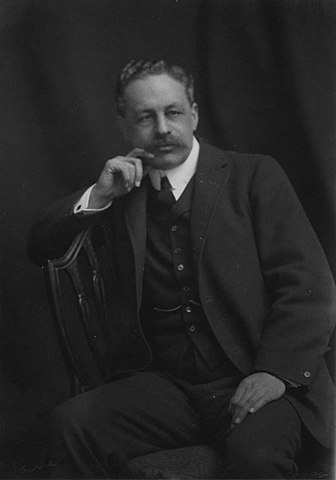Geopolitik and the Ukrainian Crisis
Borderlands
Soviet foreign policy under Stalin was the same as Tsarist foreign policy before him and is the same as modern Russian foreign policy under Putin. Russia wants friendly nations to serve as buffer states on their borders. This provides protection from attack and hence the importance of Mongolia and Korea in the east. The states that border Russia to the west are historically called borderlands in Russian and that is what the name Ukraine means in Russian language. When Vladimir Putin says that Ukraine is not a sovereign nation he does not mean they don't have a right to independence and self determination; only that Ukraine does not exist as a separate and self-sufficient military power. It never was and never will be.
In Russian policy, borderlands like Ukraine, Finland, Poland and the Baltic States exist only to be controlled by some military power. Either it will be Russia or the western imperialists. At present in 2022, these borderland states fear Russian geopolitical power and seek aid and comfort from the west, particularly the United States.
This is always a mistake. Poland and the Baltic States are far away and America quickly abandons any ally on the basis of even minor contingency. For example, they abandoned South Vietnam after a 10 year commitment in blood, solely for a few dollars more on their budget. The retreat from Afghanistan was so inglorious they even left their war dogs behind. The cynicism was, and always is, astounding. If Poland thinks they are about to get better treatment they probably have another thing coming.
Der Ostsiedlung
Like Germany, Russia regarded the border revisions in the Treaty of Versailles' (1919) with disdain. Twenty years later in reaction, Germans pushed east to regain the territories it lost through the treaty. Russia could only react by annexing eastern Poland and the Baltic states of Estonia, Latvia and Lithuania. Ukraine already belonged to them. These were all borderlands, both for the Germans and the Russians. German eastwards migration, der Ostsiedlung, began centuries before with the conquest of the region around Berlin from the Wends. They were Slavic peoples that lived there but migrated south out of harm's way towards modern Slovakia. People down there still speak a Wendic dialect called Sorbian, and interestingly also in Texas (the Texas Wends). This conquest is the origin of the Kingdom of Prussia, the eastern Germanic state once known as the Mark Brandenburg, from the Danish word Mark that also means borderland. For western Europeans, the Prussian Germans became a bulwark against Slavs from the faraway eastern hinterlands. The Kingdom of Prussia was a perfect buffer state for France and problems only arose when Napoleonic France expanded eastward across the Rhine River.
That's when things began to spiral out of control because Prussia felt threatened; as they were. It all reached a tripping point with Prussia's annexation of Alsace in 1871 that led to the 1st phase of the General European War (1912-1923). When the general European war began again in 1939 the newly formed Third German Empire (das Dritte Reich) continued the Ostsiedlung into Ukraine, Poland and the Baltic States. All this is always blamed on German dictator Adolf Hitler. But German foreign policies were based upon ancient mystical traditions, not one man's pathological problems. This is all foreign to the western and American mindset.
Geopolitik
Geopolitics is the notion that geography determines the history of the world and modern Americans know very little about it, including especially the political class. They think the world belongs to them by the natural right of America's perfection and in some respects this is correct. The American landmass lies upon a privileged position: it has 15,000 miles of navigable rivers; more than the rest of the world combined. They have vast population centers that sit upon two big oceans and their trade routes. American consumer economy is as large as the rest of the world combined. All this is due to their geographic setting. However, beyond all that, is the dangerous expectation that the whole world must adopt not only superficial and transient American values, but accept the American political system, in its entirety, no matter what.
Geopolitical rational looks at the world differently. It isn't voting blocks in corrupt legislatures that decide how people think and behave. Rather, among the ruling elite that have the authority to move nations and people, geopolitical power directs them, and a nation's people, towards outcomes that are determined by geography. Largely, Geopolitik holds that civilizations draw their strength from a paranormal base centered upon the earth and its soil. This does not negate the role of the individual. Rather, those societies and leaders that recognize the role of geography will find an uncomplicated path to national security and stability. Geopolitical theorist Halford Mackinder (1919):
I have no wish to stray into excessive materialism. Man and not nature initiates, but nature in large measure controls.
(Note: You can view every article as one long page if you sign up as an Advocate Member, or higher).





